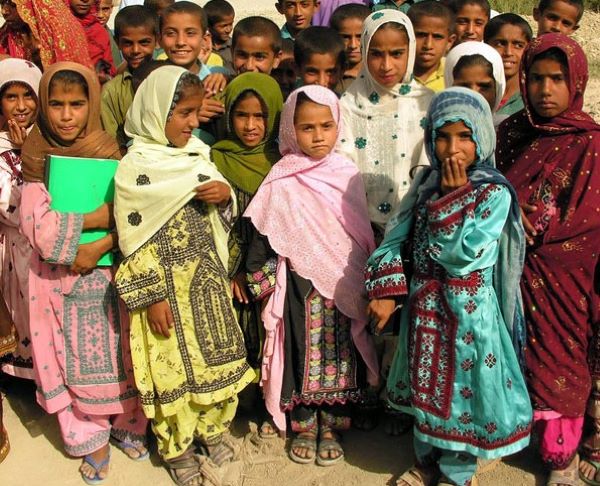31 March 2023 ~
The Iranian government has a problem: Iranian schoolgirls are being poisoned. An even bigger problem for the Iranian government is that it has been slow to act when it should make the health and well-being of Iranian schoolgirls a priority.
As many as seven-thousand Iranian schoolgirls have been poisoned across the country, in ninety-one schools, located in nearly all of the thirty-one provinces, since November 2022. The first incidents happened in the city of Qom, and nearly every incident has occurred primarily in schools primarily for girls. School officials described students being poisoned by toxic gas emissions. Hundreds of infected schoolgirls have been hospitalized with symptoms of respiratory distress, numbness in limbs, heart palpitations, headaches, nausea, and vomiting.
Dismissed Reports
The Iranian government initially dismissed the reports of the poisonings and asserted conflicting reasons for the schoolgirls’ symptoms, including blaming the occurrences on underlying diseases, anxiety, and ‘hysterical emotions.’ Iran’s Interior Minister Ahmad Vahidi said the reports of schoolgirl poisonings are an attempt to undermine the country’s clerical establishment: that it is a terrorist attack on Iran’s way of governing. Iran’s state media described the schoolgirl poisonings as an attempt by students to miss exams. However, Iran’s Health Ministry revealed in February, that a team of toxicologists identified the toxins that poisoned the girls as nitrogen gas. He later walked back his comments.
However, the human rights monitoring group The Genocide Report, suggests a more ominous purpose for the attacks, blocking girls from a very basic human right, seeking an education, and using fear to silence the schoolgirls from basic freedoms. The fear is real. At the announcement of the first incidents, some Iranian officials wanted all girls’ schools closed. Many parents have removed their daughters from schools as a result of the attacks.
Not the First Time
The incidents in Iran are similar to a series of alleged poisoning cases in schools in Afghanistan a decade ago. In 2012, at least 150 Afghan schoolgirls were poisoned in Takhar province. Then again in 2015, some 600 Afghan schoolgirls were poisoned in Herat province. In both cases, the Taliban was suspected of carrying out the attacks against the schoolgirls.
In 2014, there was a series of acid attacks in Isfahan, Iran targeting women, for not being properly veiled. The acid attacks were frequently carried out, as Iran’s conservative-dominated parliament was passing stricter dress codes for Iranian women and girls. The perpetrators threw acid into the face of women and girls. No arrests were made, and no one was prosecuted for the crimes. Acid attacks continue in Iran. Some 70 women have been attacked every year in the country: the most common reason is improper veiling.
Women Life Freedom
It is believed that the current poisonings are revenge for the protests that erupted against the Iranian government after the death of Mahsa Amini. At the time of her death, Ms. Amini was in the custody of the morality police and was accused of breaking Iran’s strict dress code – improper veiling.
In addition to the poisoning of schoolgirls, journalists covering the attacks have been arrested, and a mother was violently beaten in front of her children’s school for demanding information. The two female journalists who reported on Mahsa Amini’s death remain in prison, and Ms. Amini’s family continues to receive threats. All of which are further evidence of a pattern by the Iranian government to silence anyone who demands accountability for human rights violations against women and girls.
Call for Accountability
The US, EU, and the UN condemned the Iranian government’s failure to act, as well as its deliberate suppression of credible reports and evidence, and have called for thorough investigations into the poisonings of Iranian schoolgirls. State authorities have failed to promptly investigate the attacks and until recently, repeatedly denied them. Iranian authorities need to launch an immediate, transparent, and impartial investigation into the poisoning of schoolgirls, bring the perpetrators to justice, and ensure the safety of all students.
Iranian authorities have also failed to investigate the government’s repression of widespread protests, which includes arbitrary arrests, torture, extrajudicial killings, including children, as well as the execution of four young men for their alleged roles during the protests.
The physical and mental well-being of Iranian schoolgirls is deeply concerning. Iranian schoolgirls have a fundamental right to education. Unfortunately, Iran’s long history of disregard for the basic rights of its citizens – especially women and girls – tarnishes the Iranian government. But now is the time for Iran to take a different approach and hold the rights of women and girls to a higher standard.
With gratitude… Lara
Photo Credit: Girls in primary school in Chorrak by UNICEF Iran. Licensed under CC by ND 2.0.
thinkingoutloud #larakajs #TOL #Iranianschoolgirls #humanrights

